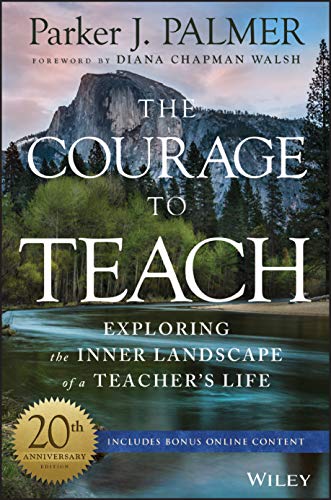Mindful School Communities
Think you might want to read this book?
Mindful School Communities by Mason, Rivers Murphy, and Jackson have written a practical guide for school leaders and teachers who wish to create a school environment in which students can develop skills to cope with stress and pressure. By creating schools where teachers and administrators model positive relationships with each other and with the students in their care, students can learn how to care for their own social and emotional well-being which can better help students develop academic skills. Grounded in current biological research about mind-body connections, this book gives teachers an opportunity to reflect on their current classroom practices, envision the relationships that they want to build with their students, and implement exercises and lessons for teaching the heart-centered principles.
What Would Socrates Ask?
How can compassion-centered education transform school leadership, teaching, and learning?
How can fostering caring communities and a culture of belonging at school enhance academic performance?
What can teachers and school leaders do to cultivate a psychologically safe teaching, learning, and working environment?
Where and how can teachers and administrators model caring relationships for the students in their care?
How can teachers and administrators align social emotional learning goals to academic learning goals?
Research
“When we are conscious of our breath, of our emotions, and of those around us, we are more likely to act in compassionate ways and reinforce neural pathways that provide positive feedback about our lives.”
Concepts
Heart-Centered Learning - supported by neuroscience and neuropsychology, Heart Centered Learning is holistic and exists where emotions, consciousness, and student interests and needs are central parts of curriculum and instruction and the essence of creating a compassionate learning community. This approach encourages and fosters five Cs of social-emotional learning: consciousness, compassion, confidence, courage, and community. This is important since emotional centers of the brain are connected to those involved with cognitive learning.
Consciousness - the heightened awareness of the self and that which is external to the self; it helps us be more fully present and aware; with consciousness, we are invited to open our eyes, our ears, and our heart to the lives of others - to their being, their voice, their beauty, and their needs.
Compassion - a mutual exchange of exercising a genuine sympathy for others’ suffering as well as the will to help minimize or reduce their pain, and, in turn, receiving strength through this extension of this love and caring
Confidence - when we are able to proceed without hesitation or worry
Courage - a willful, intentional act, executed after mindful deliberation, involving objective substantial risk to the actor, primarily motivated to bring about a noble good or morally worthy purpose despite the presence of the emotion of fear
Community- a community that is the wraparound hug or the invitation into the “circle”. A community that makes everyone feel as if they are being listened to because of the embedded sense of safety, belonging, and importance students and faculty members feel.
Quotes from the author
“Heart-Centered Learning matters because the students in your class who have experienced or who are experiencing abuse, neglect, poverty, racism, bullying, or discrimination benefit from your efforts to make them feel safe at school.”
“Explicitly teaching students about the coherence of their heart and emotional states can empower [students] to use mindfulness to self-regulate thought patterns, emotions, and physiological changes.”
“It takes effort to create positive school environments.”
“Heart-centered leaders understand that the antidote to bias is equity consciousness - educating in a way that is rooted in the belief that all students are innately wired for high intellectual performance and engagement, to demonstrate strengths, and to be self-determined enough to develop these strengths for self-actualization and personal contribution.”
Quotes from others
“Teachers should always start with the basic assumption that everything they do or say can have a major impact on a student’s life - not only in the classroom but later in life.” - Robert Brooks
“Love and compassion are necessities, not luxuries. Without them, humanity cannot survive.” - The 14th Dalai Lama
“If your actions create a legacy that inspires others to dream more, learn more, do more and become more, you are an excellent leader.” - Dolly Parton
Implement tomorrow?
Practice intentional breathing.
Begin each day with a two-minute grounding: a positive “sit” to improve focus and clarity.
Make pausing and reflecting (without judgment on either success or failures) a prerequisite to decision making, communication, or response
Organizations/schools working on answers
Gateways to further learning
Referenced books with the potential to impact leading and learning in education
The applicability of this book to education is ….
Resources










